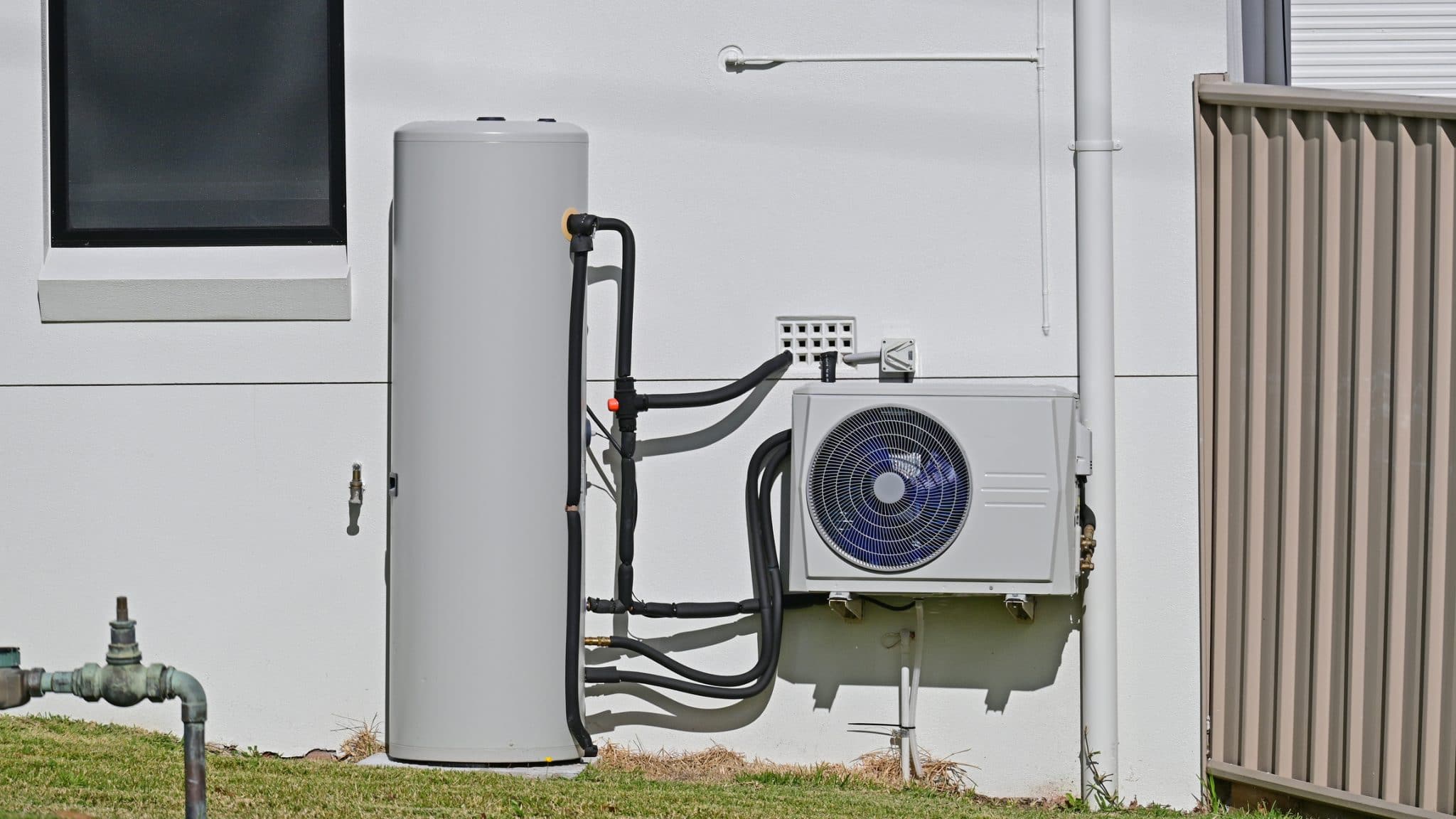Let’s face it—replacing your water heater isn’t exactly glamorous. It’s not something you show off to your friends like a new backsplash or that fancy espresso machine.
But if your current water heater is on its last leg (or already in water heater heaven), it’s time to consider your next move.
If you’re looking to save energy, cut your utility bills, and take advantage of serious rebates, a heat pump water heater might just be the upgrade you didn’t know you needed.
This move inevitably raises questions: How much does a heat pump water heater actually cost to install, and is it worth it compared to a traditional gas or electric model?
Let’s break it all down—with real numbers, practical insight, and everything homeowners need to make an informed decision.
The Average Heat Pump Water Heater Installation Cost
The total cost to install a heat pump water heater can range between $2,500 and $5,500, depending on several key factors:
- Unit Cost: $1,500–$3,000
- Labor and Installation: $800–$2,000
- Electrical Upgrades (if needed): $500–$1,000
Higher-end units, additional plumbing work, or upgrading your electrical panel can all drive up the total. That said, even on the high end, a heat pump water heater can pay for itself over time through lower energy bills and potential rebates.
How Does That Compare to Traditional Water Heaters?
A traditional electric or gas water heater usually costs between $1,000 and $2,500 to install. So yes, a heat pump water heater typically costs more upfront; but that’s only part of the story.
While traditional models may be cheaper initially, they cost more to operate month-to-month. Heat pump water heaters can use up to 70% less energy, which means lower bills every single month.
Why the Higher Price Tag?
Heat pump water heaters flip the switch on energy consumption. Instead of creating heat directly like traditional models, they pull warmth from the air around them and transfer it to the water inside the tank. It’s like magic, except it’s real—and powered by physics.
Because of this innovative design, they require more advanced components, better insulation, and often electrical upgrades. But the efficiency gains are substantial, and that’s where the IRA heat pump water heater rebate comes in.
How to Slash the Cost with IRA Rebates
Thanks to the Inflation Reduction Act, qualifying homeowners can receive up to $1,750 in rebates for switching to a heat pump water heater.
That means if your install costs $3,000, you could end up paying just $1,250 out of pocket. And in some cases, additional state or utility incentives can help offset the remaining cost even further.
✅ Pro Tip: Visit MyNewHeatPump.com and fill out our eligibility form to see what rebates you qualify for. We’ll even help connect you with qualified local contractors.
What Impacts Water Heater Installation Cost?
Every home is different, and several variables affect the price:
1. Existing Setup
If you’re swapping an old electric tank, installation is often straightforward. Converting from gas or needing a new electrical circuit will add some cost.
2. Electrical Panel Capacity
Some homes with older electric panels may need an upgrade to accommodate the new water heater—this is especially common in older homes. Thankfully, there are rebates available for that, too!
3. Ventilation and Space
Heat pump water heaters need room to “breathe”—usually a minimum of 700 cubic feet. Installing in tight quarters? A duct kit or an alternative location may be necessary.
Do Heat Pump Water Heaters Really Save Money?
Yes—and it’s not even close.
According to ENERGY STAR, the average family can save $300–$500 per year on utility bills by switching to a heat pump model. Multiply that by the typical 13- to 15-year lifespan, and you’re looking at $4,000–$6,000 in savings over time.
Plus, they typically last longer than standard models (more on that in a sec).
Maintenance & Lifespan: What to Expect
Like any home appliance, regular maintenance = better performance and longevity. Thankfully, keeping your heat pump water heater in tip-top shape isn’t hard:
- Flush the tank annually to prevent sediment buildup
- Clean the air filter every few months
- Check the anode rod every few years
- Schedule a professional inspection periodically
With proper care, your heat pump water heater can last 13 to 15 years, with many units reaching 20+ years. That’s longer than most traditional models and nearly double the efficiency.
Bonus Perks: Why People Love Heat Pump Water Heaters
✔️ Whisper-quiet operation
✔️ Built-in dehumidification (great for basements!)
✔️ Environmentally friendly
✔️ Consistent, reliable hot water
✔️ Eligible for rebates and incentives
FAQs About Heat Pump Water Heater Installation Cost
Is it worth upgrading to a heat pump water heater?
Absolutely. While the initial cost may be higher than a standard electric or gas unit, heat pump water heaters use up to 70% less energy, leading to lower utility bills every month.
With an average lifespan of 13–15 years (and often longer with proper maintenance), they also tend to last longer than traditional models. Factor in generous federal and state rebates, and the upgrade can pay for itself over time.
Can I install a water heater myself to save money?
While it might seem like a good way to save money, installing your own water heater is not advisable. Heat pump water heaters are more complex than standard models and require specific electrical and plumbing considerations.
DIY installation can void warranties, lead to safety hazards, and disqualify you from claiming valuable rebates under the Inflation Reduction Act. Professional installation ensures the system runs efficiently, complies with code, and keeps your incentives intact.
Will a heat pump water heater work in colder climates?
Yes, modern heat pump water heaters are built to operate efficiently in a variety of temperatures. Many models include hybrid or backup electric heating elements that kick in automatically if ambient temperatures drop too low for heat pump operation.
Additionally, installing the unit in a semi-conditioned space like a basement or utility room can help maintain performance in cooler regions. With the right model and setup, they’re a reliable solution—even in winter.
Bottom Line: A Smart Investment for Long-Term Savings
Sure, the sticker price for a heat pump water heater may be a little higher, but it’s a smart, future-friendly investment that pays for itself in energy savings. When you factor in rebates, reduced utility bills, and long-term reliability, the total value speaks for itself.
Let MyNewHeatPump.com help you maximize your incentives and connect you with trusted local contractors to make the switch as seamless as possible.
Access Rebates to Upgrade Your Water Heater Today!
Qualifying homeowners can receive $1,750 in rebates when they upgrade their gas water heater to an electric heat pump water heater. Our team is standing by to help you combine state and federal incentives, saving you the most money possible.


